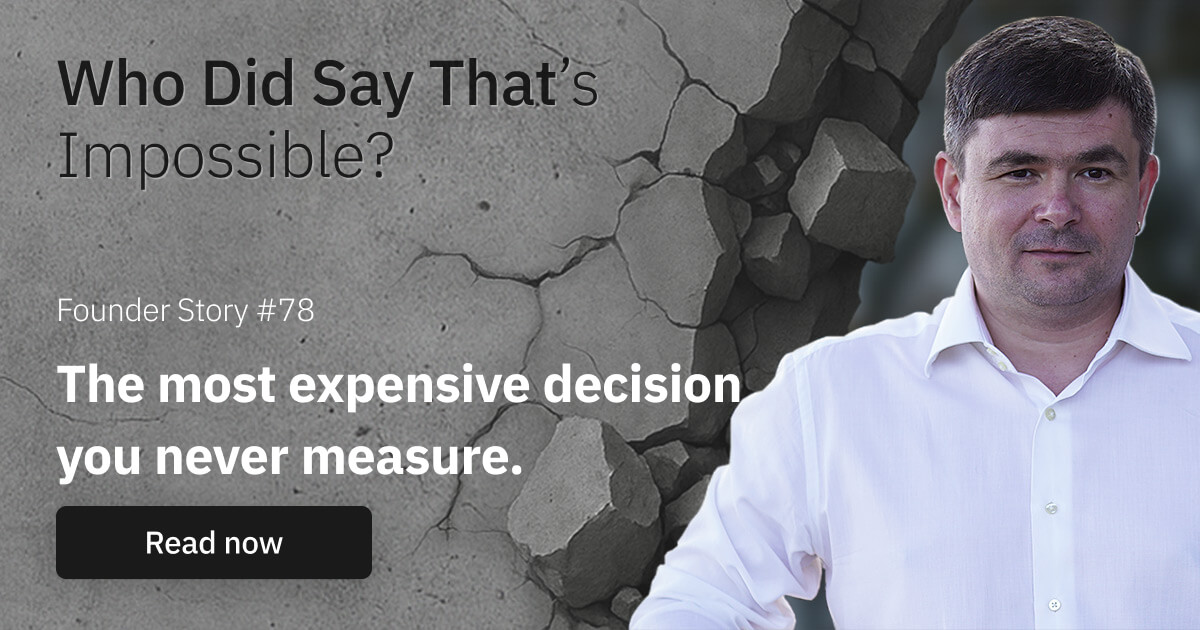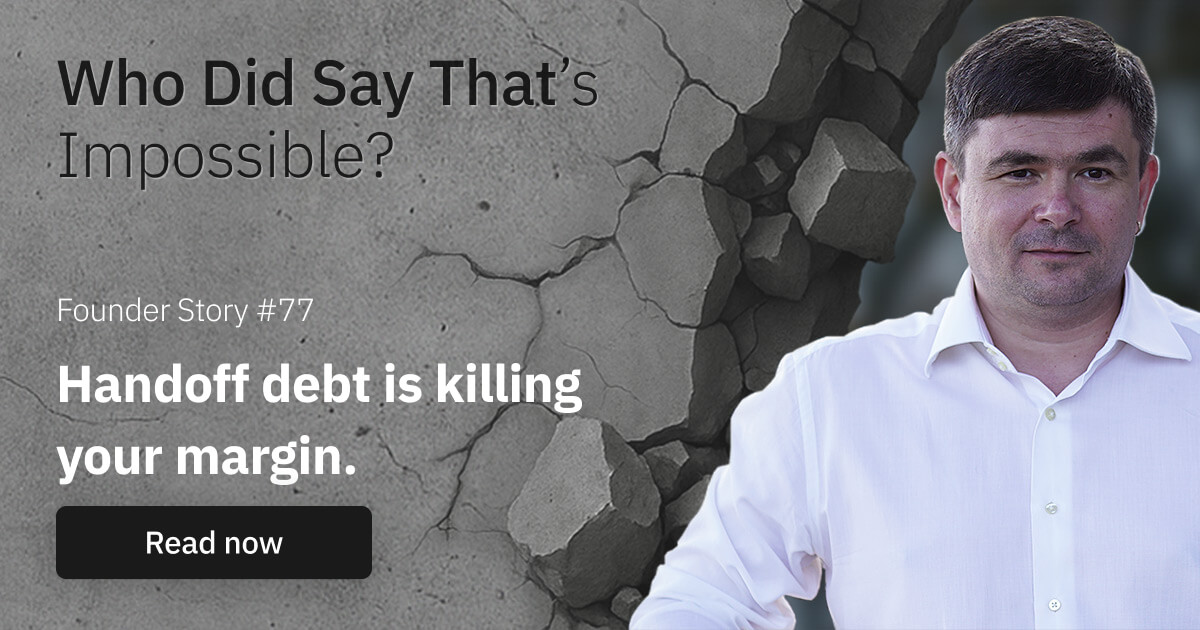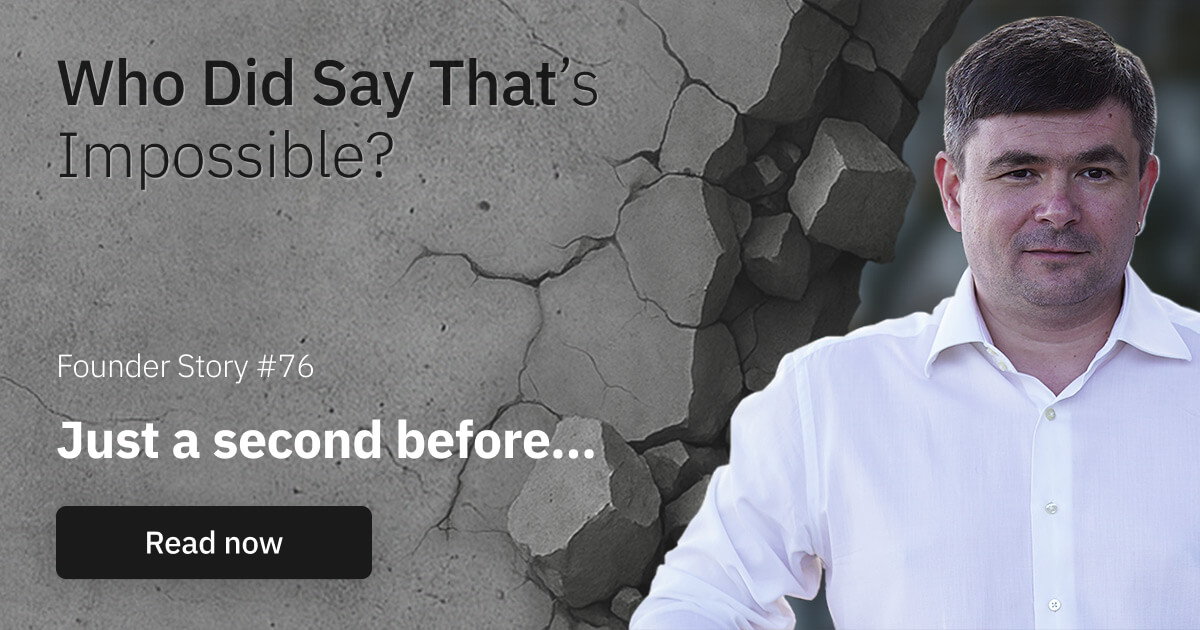Always on just means always at risk
Or minute of drowning while holding the wheel
Founders don’t burn out from work. They burn out from systems that don’t work without them.
There’s a dangerous myth floating around founder circles:
That hustle is the path. That being “always on” means you’re in control.
That if things go wrong — you just need to work harder.
But let’s be honest.
Sometimes the only thing working harder does is speed up the crash.
A few years ago, I hit that point.
Financial pressure. Blocked accounts. Broken contracts.
A million fires, and no way to step back.
I sacrificed my health. My presence with family. Even my self-confidence.
Because I couldn’t switch off. Not because I didn’t want to.
But because I had built a business that couldn’t function without me.
Sound familiar?
You think you’re being a responsible owner.
Answering messages. Managing clients. Keeping everything moving.
But in reality, you’re robbing your future self.
If your entire system depends on your constant presence, you will never see the big picture.
Never catch the signs early. Never spot the opportunity until someone else takes it.
That’s how good businesses collapse.
Not from bad products. But from operational exhaustion.
Worst of all, you ignore the long-term rot that builds under the surface:
- Your health. You feel it slipping, but there’s no time to care.
- Your clarity. You can’t zoom out, because you’re buried in execution.
- Your team. They wait on your decisions, because the business is wired that way.
- Your opportunity cost. Trends and ideas pass by, but you’re too tired to see them.
Eventually, you stop managing a business. You just survive it.
Why systems matter before the storm hits
Founders love to quote Elon sleeping at the factory.
But no one wants to talk about the other side:
The systems that let great businesses recover.
Think Boeing. Still bleeding, but still flying.
Because structure creates resilience.
This isn’t just for corporations.
This is true whether you have 3000 employees or 3 contractors.
The founders who survive downturns aren’t the ones with better luck.
They’re the ones with better margins, not just financial, but cognitive.
Margin to think. To step away. To decide from a calm place, not a reactionary one.
I’ve learned something the hard way:
Most emergencies are not actually urgent.
They just feel that way when there’s no structure in place.
That’s why some founders recommend stepping away.
A weekend off. A long walk.
Even doing manual labor just to reset your brain.
Because clarity comes when your mind finally gets to breathe.
But that only works if the business keeps moving while you’re gone.
And that’s the difference between a founder who survives and a founder who leads.
Disclaimer.
Every business has its nuances, and every founder has their unique context and resources. Whether or not my advice applies depends on your situation, experience, and needs. But one thing is universal—use your brain.
Think about how to apply the advice in your context before acting.
Your way.
- Eugene
Join the “most offbeat” Businessletter on entrepreneurship.

Hi, I’m Eugene.
Over the past 20+ years, I’ve grown an international agency from one-person freelance to a multimillion-dollar business. I’ve led teams, scaled systems, burned out, rebuilt, and learned (the hard way) what it really takes to run a business that doesn’t consume your life.
I help them make sense of complexity, design simple systems, and create the kind of business they actually want to run.
More Stories
Founder Stories

The most expensive decision you never measure
Or minute of realizing that “later” is still a choice

Handoff debt is killing your margin
Or minute of realizing your biggest costs live between tasks, not inside them.


